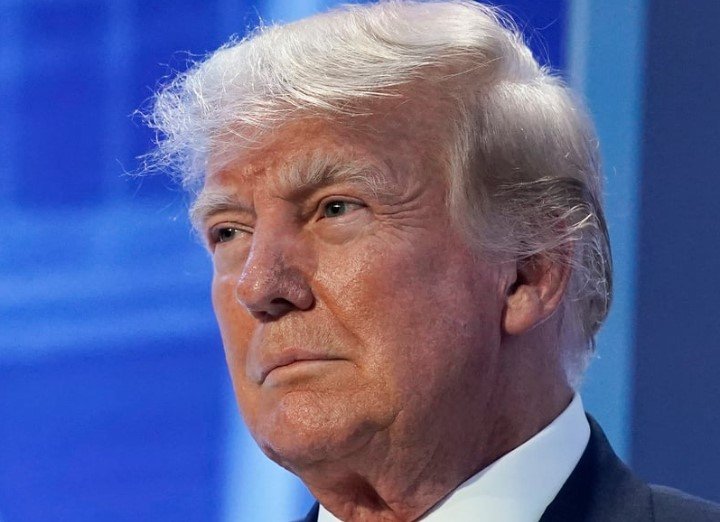As President Donald Trump continues to exercise his executive powers, his recent pardons for individuals involved in the January 6th Capitol insurrection have ignited conversations about justice, accountability, and the broader implications for those connected to the attack. But for some, including Georgia native Jake Maxwell, these clemencies hold personal significance that could alter the course of their futures.
Trump’s sweeping act of clemency extends to more than 40 individuals from Georgia who were charged for their roles in the violent Capitol breach, with over a dozen of them accused of assaulting police officers or engaging in violent acts. Maxwell, who had already been convicted of certain charges, is now among those to receive a “full, complete and unconditional” pardon, offering him a new lease on life.
A Georgia Defendant’s Rebirth
For Jake Maxwell, the pardon was a moment of immense relief. The 23-year-old, who had been wearing an ankle bracelet for months, now finds himself free from restrictions. “I’m just over 24 hours from cutting off the ankle bracelet,” Maxwell shared with WABE, his words filled with a sense of liberation. “I can go anywhere I want and not have to ask permission anymore. It’s an amazing feeling. My brain is like, re-wired.”
Maxwell’s journey began on January 6, 2021, when he traveled to Washington, D.C., to show his support for then-President Trump. Alongside thousands of others, he participated in the rally at the Ellipse, where Trump urged his supporters to march to the Capitol. It was here that Maxwell’s involvement in the insurrection began to take shape.

Although he did not enter the Capitol building, Maxwell remained on-site as violence unfolded. Prosecutors allege that he was part of a crowd that broke through police lines and pushed toward the Capitol’s Inaugural Stage and Upper West Terrace. Video evidence from body cameras was used to accuse Maxwell of assaulting two police officers, a claim that Maxwell disputes.
Maxwell was charged with seven counts in February 2022. After a lengthy legal battle, he stood trial, maintaining his innocence. By November 2023, U.S. District Judge Richard Leon cleared Maxwell of four charges related to assaulting officers, yet he was found guilty of three counts, including Civil Disorder and Disorderly or Disruptive Conduct in a Restricted Building.
The Power of Presidential Clemency
The decision to grant clemency to Maxwell, along with several others, raises important questions about the role of presidential pardons. Though the power of clemency lies within the president’s authority, its application in such controversial cases has prompted debate about the broader implications for justice. For Maxwell and others, the pardons offer a chance to rebuild their lives after a harrowing period of uncertainty and legal battles.
The pardons also have political ramifications, as they come at a time when Trump is preparing for a potential political comeback. Critics argue that these actions might be part of a larger strategy to garner support from his base, especially those involved in the January 6th events. But for Maxwell, the focus is less about politics and more about personal freedom.
For former prosecutors, Trump’s decision to extend pardons is a reflection of the president’s stance on criminal justice. While some see it as an attempt to correct what they perceive as a miscarriage of justice, others view it as a signal of leniency toward individuals who may have been caught in a larger political conflict.
Legal and Social Impact of Pardons
In the aftermath of the January 6th insurrection, the question of accountability has been central to public discourse. With more than 1,000 individuals charged for their roles in the Capitol breach, some, like Maxwell, have found themselves in a lengthy legal battle, facing potential prison time for crimes associated with the attack.
Maxwell’s case is particularly significant because it highlights the tension between legal accountability and the exercise of presidential power. Some argue that pardoning individuals like Maxwell is a step backward in terms of holding people responsible for their actions during the Capitol riots. Others, however, see the pardons as a chance for these individuals to turn over a new leaf.
In addition to Maxwell, more than 40 other Georgia residents received pardons, all with their own stories and legal outcomes. While the full impact of these pardons is still unfolding, it’s clear that they will continue to play a role in shaping the national conversation about justice, accountability, and the long-lasting effects of the January 6th events.
A Nation Divided Over Justice
As Trump’s clemency decisions reverberate across the nation, the question remains: What does this mean for the broader conversation about justice and political power? While some supporters of the pardons argue that they are a fair and just way to move forward, others see them as an effort to dismiss the significance of the events that took place on January 6, 2021.
In the years to come, the legal, social, and political ramifications of these pardons will continue to unfold. Whether they are viewed as a form of political redemption or a troubling example of executive overreach, the effects will undoubtedly influence how the United States deals with the aftermath of one of its most violent and controversial moments in modern history.
